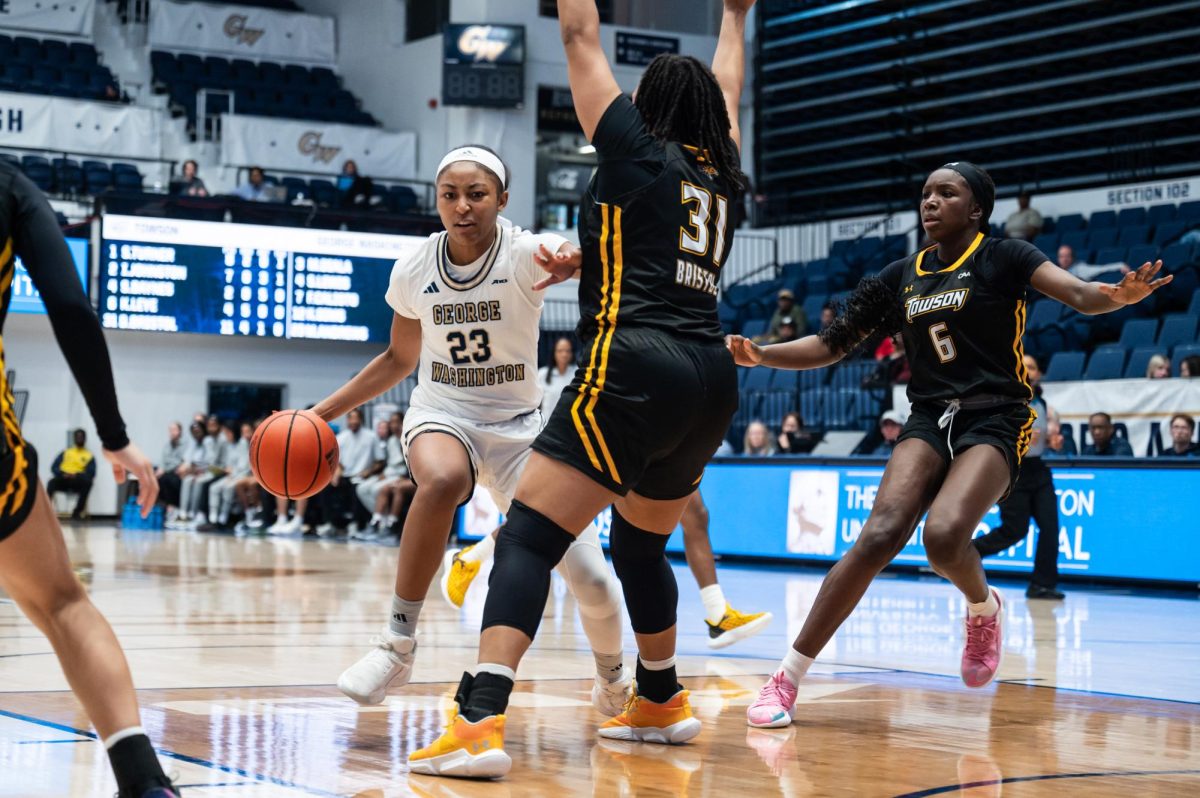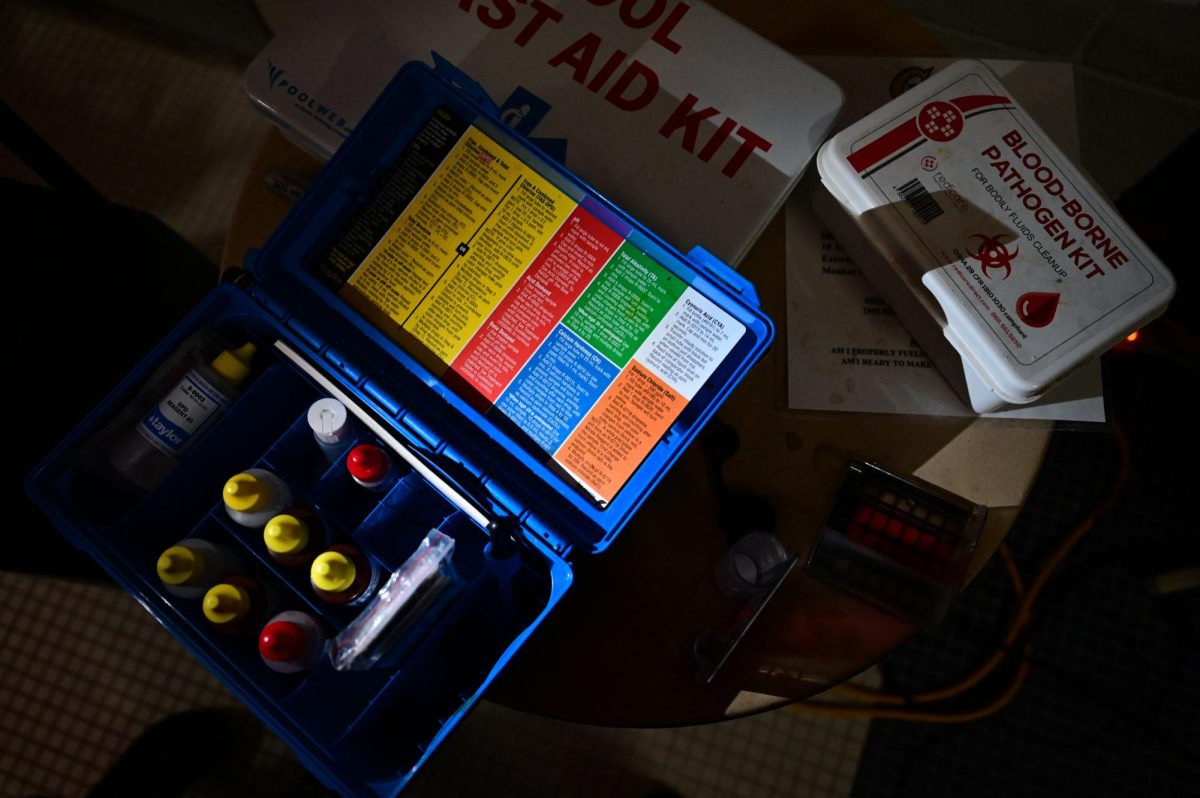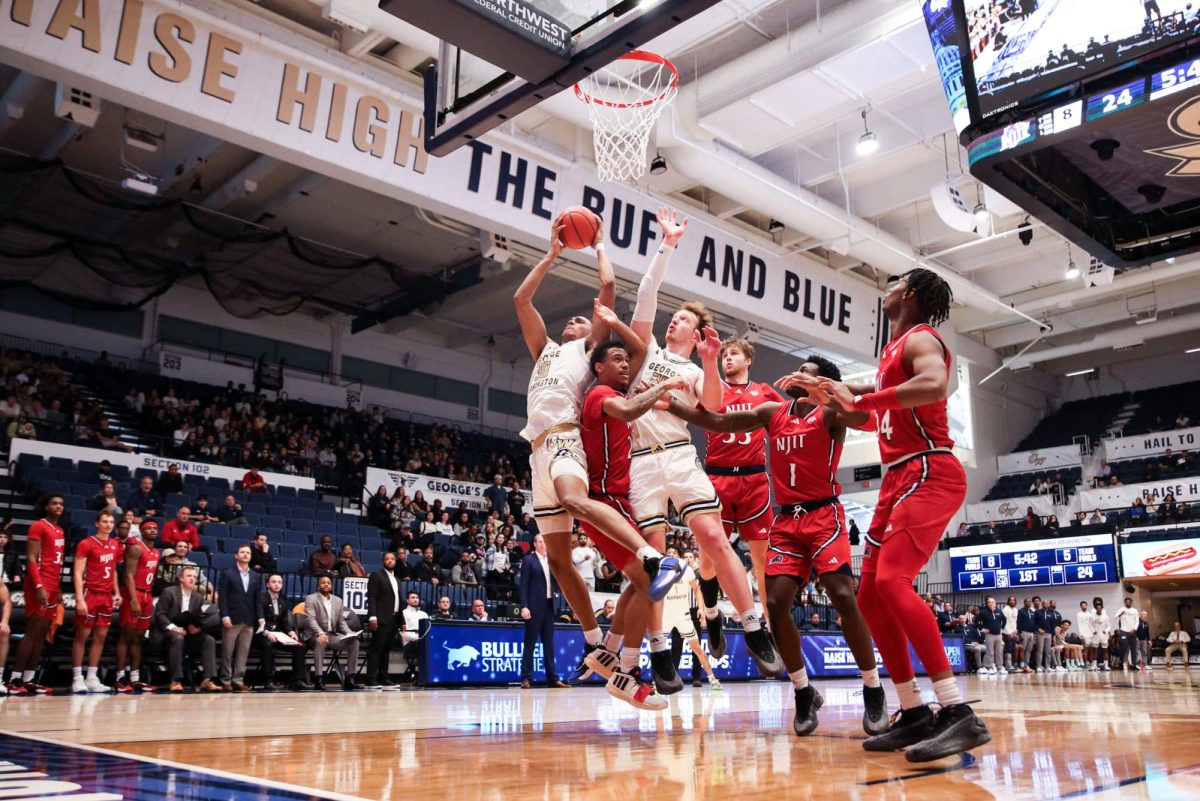Like the title character in “Napoleon Dynamite,” senior Mark Protacio thinks bikes are pretty sweet. But it’s safe to say none of the numerous Napoleon wanna-bes on campus have ever approached Protacio, admired his sleek racing bike, and exclaimed “Lucky!”
“People have come up to me and asked, ‘GW has a cycling team?'” said Protacio, a co-founder of the University’s club cycling program, “‘Of course’ I said, ‘I’m the president.'” In other words, “Heck yes.”
Like “Napoleon,” the GW cycling team began as a little-known entity and became successful in a relatively short period of time. Since the team’s inception last fall, 13 GW cyclists have participated in intercollegiate races in various spots on the East Coast. The team consists of more than 50 riders who practice regularly. Because many of them have just started to cycle competitively, they have not all raced yet.
“We started up so fast that it was intimidating for recreational riders to come in and say ‘damn we’re racing in two months we’re not ready for that,'” said Michael Kuhne, a GW medical school student and co-founder.
In their first season, the Colonials sit in fourth place in the Atlantic Coast Collegiate Cycling Conference standings. This weekend, GW will compete in the ACCC conference championships in College Park, Md.
A top-five regular season finish would qualify GW for the college national championships held in Lawrence, Kan., on May 13-15.
While championships are not normally on the line in club sports, college cycling is different. The individual winner of the National Championship race is annually awarded a professional cycling contract.
Members of the GW cycling program do not expect to reach that level right away. Still, the Colonials are proud of the high level they are at in the program’s first year of existence.
“It was pretty whirlwind to get it all started out,” Protacio said. “Our results speak for themselves. We’ve got a chance to go to the national championships.”
The race to get the program up and riding began last fall, when a few students met while riding with a local area D.C. club team. It quickly dawned on them: University of Maryland, American and John’s Hopkins have cycling teams, why not GW?
So they planned, hammered out the details over a few drinks at Lindy’s one night, and soon began to recruit some guys and girls – the team is co-ed.
But after such a quick start and the team’s initial success, there is hard work ahead. Currently, the GW cycling team is completely self-financed by its members. Like golf, tennis and many other modern sports, bicycling entails buying expensive equipment.
Kuhne said jerseys (which the team had printed) can cost at least $100 apiece. Bike shoes, pedal clips, and helmets increase the bill quickly. Race fees are usually
about $15 a person, he said, and let’s not forget the actual bike.
“They can run anywhere from several hundred to several thousand dollars,” Kuhne said. “An entry level road bike can cost six hundred or so. You’ll see some crazy bikes for six thousand dollars.”
This offseason, Kuhne added, finding sponsors is the team’s biggest goal. The new team is also always looking for new members. With Lance Armstrong’s success over the past decade, cycling has reached new heights in the United States, which Protacio said trickles down to the college level.
“American cycling has picked up a lot of steam since Lance came around,” he said. “It’s become more and more popular at the high levels and low levels and anywhere in between. We’ve kind of jumped on those coattails a little bit.”
“Now it’s starting to get a lot bigger,” Protacio added. “This is only my first year cycling.”
For more information on the GW cycling team, visit its Web site at http://studentorgs.gwu.edu/cycling, or email the bikers at [email protected].






